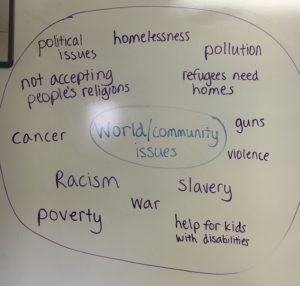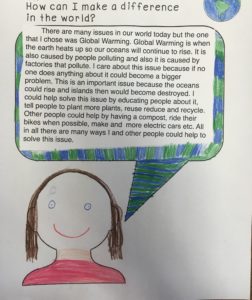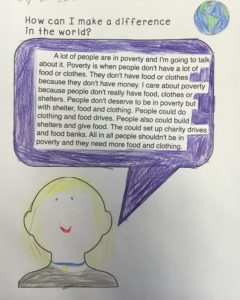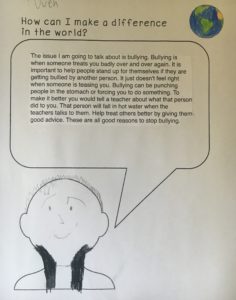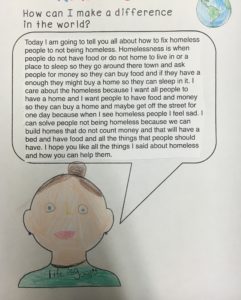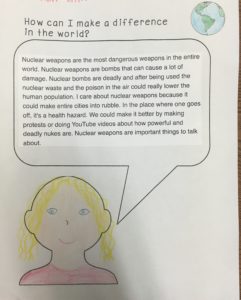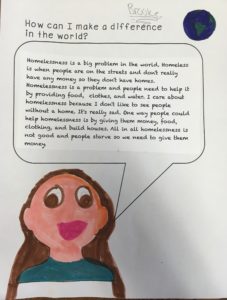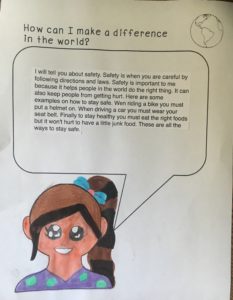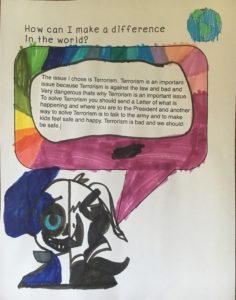The world has felt scary and unsafe lately. While that used to be a “Jen-thing” for a good chunk of my life (i.e., let’s work on this in therapy, why does the world feel so scary for no reason?) it’s currently….not. I’m not even slightly alone in this feeling, and honestly, rather than that being comforting, I only wish it was a Jen-thing rather than our reality.
And one thing I tried to figure out back in January was, what the heck am I going to do/talk about/say to/work on with my students? We’re in a situation where we as educators and therapists can’t share our fears or beliefs with our students (which could be a whole post in and of itself ), but where our students are aware of what’s happening in the world, regardless of their own beliefs about it (which at many of their ages, are just their parents’ beliefs being parroted).
So after a lot of thinking and toying with different ideas, I decided to do a project around “World Issues”. It started about a month ago, with us talking about Martin Luther King Jr., and how we had a day off to celebrate him, and why we celebrate him and what issues he cared about. Then we brainstormed other issues that exist in the world or in our community. You guys – kids KNOW. They hear things and they are aware, and they care. They very quickly rattled off issues and examples that they’ve heard of or witnessed in our world and community. Here’s an example of one group’s brainstorm (excuse the horrible picture quality):
The dialogue that happened was powerful. For each group it meant different things – sometimes simpler and sometimes more in depth, but the point was, they all had reactions and feelings about these topics. I could write for days about each group and the conversations we had, but I’ll just share this one: One student said “war? But that doesn’t happen anymore. There hasn’t really been a war wince World War 2.” And then another student said, “War happens all the time still, like in Syria,” and the first student responded, “That can’t be right. If a war was going on, the United States would do something about it and make it end and not just ignore it.” I know. Powerful.
Politics came up here and there – how could they not? But we kept things factual (“yes, that did happen, yes, that order was signed, yes, some people are upset about it, yes, some people are happy about it”) and moved on.
Then they each chose an issue that they cared a lot about. With two different graphic organizers, they brainstormed and organized information on their issue. The project culminated in them writing a paragraph about the issue of their choosing, and for my students, this is no small feat. All of the steps involved in writing a paragraph when you have significant learning/language disabilities and challenges, maybe with ADHD and anxiety also, can take up to 5 or 6 48-minute sessions. Which is why their end products are so wonderful and move me to tears. (For the record, I also got moved to tears when they wrote a paragraph comparing and contrasting two different types of penguins – they are just such smart kids, such hard workers, and it is not. at. all. easy for them)
So: enjoy. Here’s the final products (with a pretty bulletin board display to come, hopefully next week) of some of my wonderful 6th-8th graders. Read one or two or all of them – because this is the world from the next generation’s perspective. This is the future.

